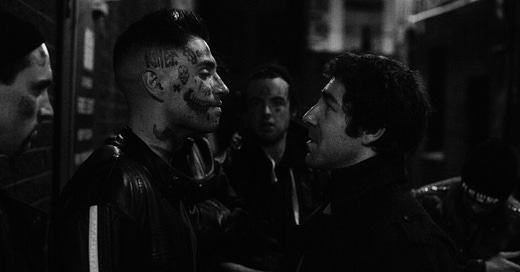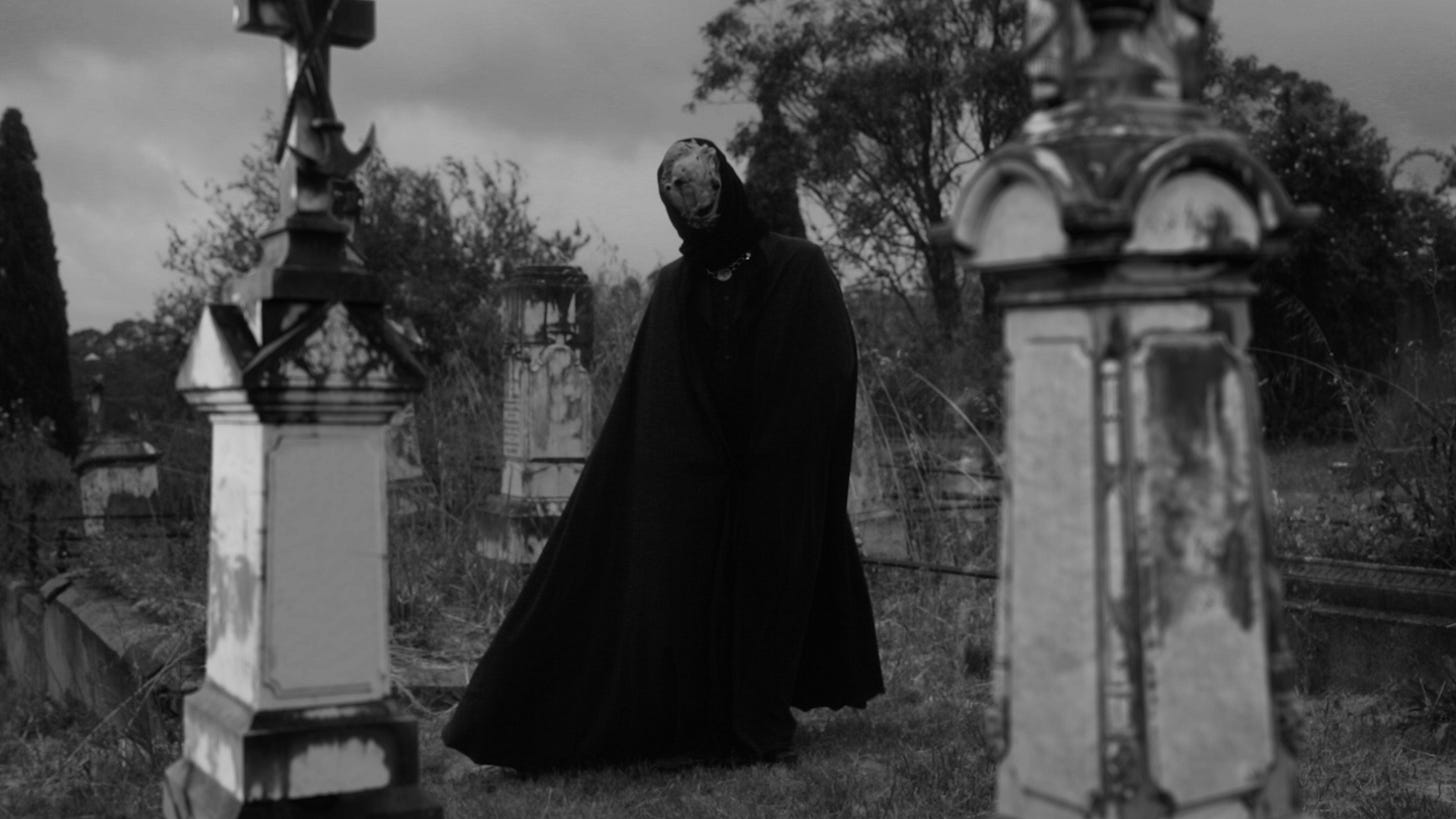I had a reaction to the new, Australian film, Psychosis, similar to what I’ve had with David Lynch films: Amused, and a little annoyed. That seems to have been very much the gameplan for writer-director Pirie Martin, who builds his film around the central conceit of a protagonist – the underworld fixer/detective Van Aarle (Derryn Amoroso) – who’s so damaged by the sadistic experiments his mad doctor father inflicted on him, that he constantly hears voices in his head, which we hear as well. And while it’s established early on the that this sibilant Greek chorus has given Van Aarle a heightened sense of intuition, it also allows Martin to pull a clever narrative trick by making one of those voices the subtly sardonic narrator (Lindsay Dunn) we hear throughout the film. From the viewpoint of Van Aarle, the old trope about “We are all stars of our own movie,” becomes quite literal.
There’s a problem with this: It flies in the face of the commonly accepted rule that filmmakers should show, not tell. Providing an audio track to convey every thought, reaction, and impulse Van Aarle has, rather than just letting the imagery do all the work, begins to wear. It never gets quite to the point of, “He opens the door and walks into the room,” but it's close. Admittedly, the redundancy may be deliberate on the part of Martin, a bit of meta commentary on the art of film. I can appreciate that. I also wish he had found some way to show his narrator the door before film’s end.
That Martin goes over-the-top with this trope is not surprising, since the whole of Psychosis is pretty over-the-top to begin with. The story has Van Aarle trying to track down a terrifying drug kingpin for reasons that don’t get much clearer than he needs the fee to keep his sister -- who’s in a coma from the same experiments his father inflicted on him – on life support. That’s a good, modern-day noir base to build upon, and the film’s finale, in which the drug boss – named Joubini (Pj van Gyen) and actually a protégé of Van Aarle’s father – subjects his victims to psychological torture is satisfyingly intense. Martin shoots in black and white, mostly, using the older, more square 4:3 aspect ratio, and populating the narrative with scummy street dealers, idiot flunkies, and a low-rent Batman surrogate called Lonewolf (Pj van Gyen). There’s a cosplay aspect to the whole affair, people putting on the façade rather than delving deeper into their performances and the filmmakers running around the streets with their (presumably) digital camera (in olden days this most assuredly would have been shot on 16mm), grabbing footage on the fly before anyone around becomes wise.
That works to Psychosis’ benefit. The gritty, make-do aesthetic harkens back to the early days of indie film, before the likes Lynch and Waters gained enough power to commandeer professional crews. It buoyed me at the moments when the nattering on the audio track began to annoy, and imbued enough good will to keep me engaged. Psychosis is a screw-loose evocation of cinema’s earlier, more dangerous days, and, flaws and all, is welcome for it.





